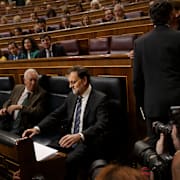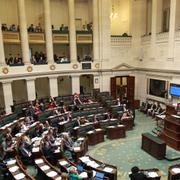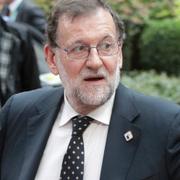bakgrund
Baskiska nationalistpartiet (PNV)
Wikipedia (en)
The Basque Nationalist Party (Basque: Euzko Alderdi Jeltzalea, EAJ; Spanish: Partido Nacionalista Vasco, PNV; French: Parti Nationaliste Basque, PNB) is a Christian democratic and Basque nationalist party. It is both the oldest and largest Basque nationalist political party. It is especially strong in Biscay but has a great sway in the entire Basque Autonomous Community and has a minor presence in Navarre (where it is a member of the coalition Geroa Bai, formerly named Nafarroa Bai) and a marginal one in the French Basque Country. The party has led the Basque regional government for a long period spanning since the devolution of Basque autonomy in the early 1980s until 2009. It has also played an important role in the Spanish Congress, along other regional nationalist parties.
In Basque it is called Euzko Alderdi Jeltzalea (EAJ) (literally meaning 'Basque Party of Supporters of God and Old Laws', or Fuero) and in Spanish it is called the Partido Nacionalista Vasco (PNV). In Spain it is commonly referred to as PNV whereas its French branch is the Parti Nationaliste Basque (EAJ-PNB). The party typically refers to itself as EAJ-PNV. The current chairman of EAJ-PNV is Andoni Ortuzar. The youth wing of the Basque Nationalist Party is called EGI (Euzko Gaztedi Indarra, Basque Youth Force).
The party also has offices among the Basque diaspora, mainly in Venezuela, Argentina, Mexico, Uruguay, Chile and the United States.
Since 1932, EAJ-PNV celebrates on Easter the Aberri Eguna, literally "Basque Homeland Day". Also, since 1977, the party celebrates Alderdi Eguna (Party Day). The party's social offices are called batzokis, of which there are over 200 throughout the world.
Currently a member of the European Democratic Party, the Basque Nationalist Party was previously a member of the European Free Alliance from 1999 to 2004. Even earlier it had been affiliated with the European People's Party from which it resigned before the European Parliament election of 1999, and the Christian Democrat International until its expulsion in 2000.





